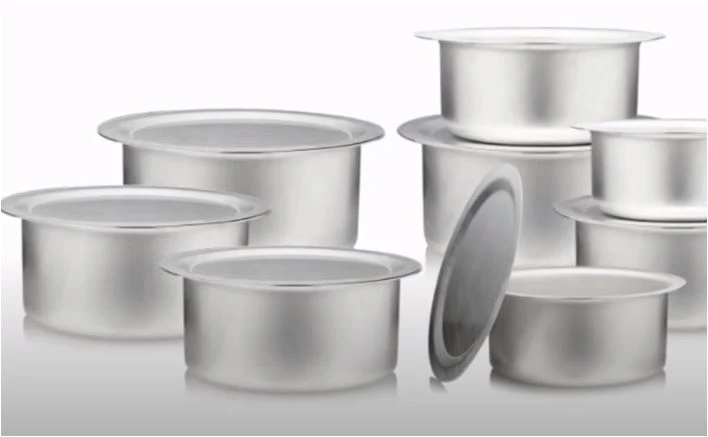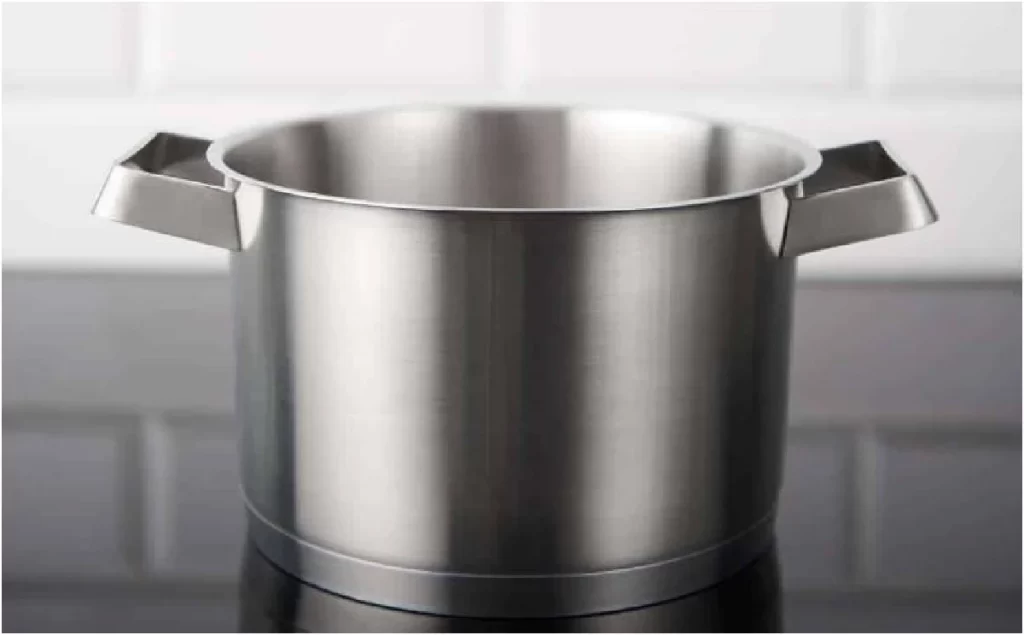| Note: This article may contain affiliate links, which means if you make a purchase following our links won’t cost you extra, but we may earn a commission. Learn more |
Cast Aluminum Cookware, though widely used and affordable, does have associated health risks that need consideration.
Aluminum is a commonly used material in cookware because it is lightweight, affordable, and conducts heat well. However, cast aluminum cookware has raised health concerns due to the potential leaching of aluminum into food during cooking. Exposure to high levels of aluminum has been linked to neurotoxicity, Alzheimer’s disease, and other health problems.
Although the human body can excrete small amounts of aluminum, prolonged exposure and accumulation can lead to health issues. Some studies suggest that acidic or salty foods can increase the amount of aluminum that leaches into the food.
While the majority of the aluminum ingested is usually expelled by the body, there is still a concern about the long-term accumulation of aluminum in the body.
Moreover, the non-stick coatings often used on cast aluminum pans may contain harmful compounds like PFOA or PFOS, which have been linked to adverse health effects.
Therefore, it is advisable to use cast aluminum cookware with caution and consider alternatives like stainless steel or cast iron for regular cooking. Regularly checking the cookware for scratches or damages and avoiding cooking acidic or salty foods can also help minimize the risks.
Is Cast Aluminum Cookware Safe To Use?
Safety is a top priority in the kitchen, and the type of cookware used plays a vital role in ensuring that. Cast aluminum cookware, a popular choice due to its lightweight and even heating properties, raises some concerns about its safety.
One of the primary concerns is the possibility of aluminum leaching into the food during cooking, which could lead to health issues like neurotoxicity and Alzheimer’s disease. While the human body can excrete small amounts of aluminum, continuous exposure and accumulation over time can be worrisome.
Moreover, the non-stick coatings on some cast aluminum cookware may contain perfluorooctanoic acid (PFOA) or perfluorooctanesulfonic acid (PFOS), which have been linked to various health problems. Thus, while cast aluminum cookware is not entirely unsafe, it is advised to use it with caution and be aware of the potential risks involved.

Cast Aluminium Cookware Health Risks
Cooking with cast aluminum cookware presents a few health risks that should not be ignored. The primary concern is the potential for aluminum to leach into the food, particularly when cooking acidic or salty foods.
This can be concerning as high levels of aluminum exposure have been associated with neurotoxic effects and other health problems.
Besides, non-stick coatings on cast aluminum cookware may contain PFOA or PFOS, compounds associated with adverse health effects such as liver damage, thyroid disease, and even cancer.
Being informed about these risks and taking necessary precautions can help minimize exposure and maintain good health.
Cast Aluminum Cookware Safety
To ensure safety while using cast aluminum cookware, some precautions must be taken. Regularly inspecting the cookware for any scratches or damages is crucial as it can increase the amount of aluminum that leaches into the food. Avoiding cooking acidic or salty foods in aluminum cookware can also minimize leaching.
Moreover, ensuring that the non-stick coating of the cookware is free from PFOA or PFOS is essential. Also, consider using alternatives such as stainless steel or cast iron cookware for regular cooking.
Following these safety measures can help in reducing the risks associated with cast aluminum cookware.
Is Die Cast Aluminium Cookware Safe
Die-cast aluminum cookware, made by pouring molten aluminum into a mold, results in a smoother surface and often a thicker base for even heat distribution.
However, the safety concerns remain the same as regular cast aluminum cookware. There is still a risk of aluminum leaching into the food, especially when cooking acidic or salty foods.
Non-stick coatings on die-cast aluminum cookware may also contain harmful compounds like PFOA or PFOS. Therefore, it is advised to regularly inspect the cookware for damages, avoid cooking acidic or salty foods, and consider using alternative cookware for regular cooking.

Cast Aluminum Cookware Pros and Cons
Using cast aluminum cookware has its advantages and disadvantages.
Pros
Lightweight: Easier to handle compared to cast iron or stainless steel.
Even Heat Distribution: Allows for consistent cooking.
Affordable: Generally more cost-effective than other types of cookware.
Cons
Health Risks: Potential for aluminum to leach into food and the presence of harmful compounds in non-stick coatings.
Not Induction Compatible: Requires a magnetic base to work on induction cooktops.
Prone to Scratches: Increases the potential for aluminum leaching.
FAQs
Is it safe to cook acidic or salty foods in cast aluminum cookware?
Cooking acidic or salty foods in cast aluminum cookware increases the risk of aluminum leaching into the food. It is advisable to avoid cooking such foods in aluminum cookware.
Are there any safe alternatives to cast aluminum cookware
Yes, there are several alternatives to cast aluminum cookware. Stainless steel, cast iron, and ceramic-coated cookware are considered safer options.
How can I minimize the risk of aluminum leaching while using cast aluminum cookware?
Regularly inspect the cookware for scratches or damages, as this can increase aluminum leaching. Avoid cooking acidic or salty foods and consider using alternative cookware for regular cooking.
Is die-cast aluminum cookware safer than regular-cast aluminum cookware?
Die-cast aluminum cookware has a smoother surface and often a thicker base, but the safety concerns remain the same as regular cast aluminum cookware. There is still a risk of aluminum leaching and the presence of harmful compounds in non-stick coatings.
Is it safe to use scratched or damaged cast aluminum cookware?
Using scratched or damaged cast aluminum cookware increases the potential for aluminum to leach into food. It is advisable to replace damaged cookware.
Are there any coatings that make cast aluminum cookware safer?
Coatings like anodized aluminum create a barrier that reduces the risk of aluminum leaching. However, it is still advisable to be cautious, especially with damaged or scratched cookware.
Conclusion
While cast aluminum cookware has its benefits, such as being lightweight, affordable, and providing even heat distribution, it also has significant health risks. Therefore, it is advised to use it with caution and consider alternatives for regular cooking.
